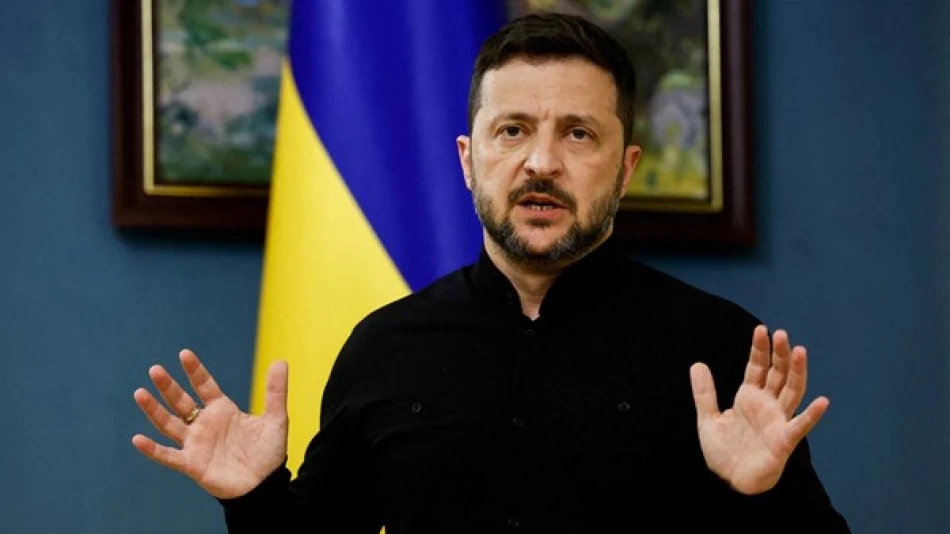
Zelensky Unveils Kyiv's Delegation for Russia Negotiations: A Strategic Update on Diplomatic Efforts
Ukraine Taps Defense Veteran to Lead Critical Peace Talks as Diplomatic Push Intensifies
Ukrainian President Volodymyr Zelensky has appointed former Defense Minister and current Security Council Secretary Rustem Umerov to head Ukraine's delegation in the next round of peace negotiations with Russia, scheduled for Wednesday. The selection of Umerov—a seasoned defense official—signals Ukraine's strategic approach to balancing military expertise with diplomatic engagement as the conflict enters a potentially pivotal phase.
High-Stakes Delegation Composition
Zelensky announced via social media that the Ukrainian delegation will include representatives from the country's intelligence services, Foreign Ministry, and the Presidential Office alongside Umerov. This multi-agency approach reflects the complex nature of the negotiations, requiring coordination across security, diplomatic, and executive branches.
The choice of Umerov is particularly significant given his dual background in defense strategy and current role overseeing national security policy. His appointment suggests Ukraine is prioritizing military considerations alongside diplomatic ones—a calculated move that could strengthen Kiev's negotiating position.
Strategic Implications for Ukraine's Position
Military Expertise Meets Diplomacy
Umerov's leadership represents a departure from purely diplomatic-led negotiations. His intimate knowledge of Ukraine's defense capabilities and limitations could prove crucial in discussions involving territorial concessions, security guarantees, or ceasefire arrangements. This mirrors successful negotiation strategies seen in other conflict resolutions where military leaders brought credibility to peace processes.
Timing and International Pressure
The Wednesday talks come amid intensifying international pressure for diplomatic solutions, with Western allies increasingly concerned about prolonged conflict costs. Ukraine's decision to field a defense-heavy delegation may reflect growing confidence in its military position or, conversely, recognition that serious territorial discussions require military input.
Historical Context and Precedent
Previous Ukraine-Russia negotiations have often stalled over fundamental disagreements about territorial integrity and security arrangements. The inclusion of intelligence representatives in this delegation suggests both sides may be prepared to discuss more sensitive operational details—potentially indicating progress beyond earlier symbolic meetings.
Similar multi-agency negotiation structures have proven effective in other international conflicts, notably in Middle Eastern peace processes where military, intelligence, and diplomatic officials worked in tandem to address complex security arrangements.
What This Means for Stakeholders
For International Markets: Any genuine progress in peace talks could significantly impact energy markets, grain exports, and regional stability investments. Defense contractors and reconstruction-focused companies will be watching closely for signals about conflict duration.
For Regional Security: The talks' outcome could reshape European security architecture and NATO's eastern positioning. Success could reduce military spending pressures across Europe, while failure might accelerate defense buildup.
For Ukraine's Strategy: Umerov's appointment indicates Ukraine is prepared to engage seriously on military-technical aspects of any agreement, potentially including discussion of force deployments, buffer zones, or monitoring mechanisms that require defense expertise to negotiate effectively.
Most Viewed News

 Layla Al Mansoori
Layla Al Mansoori






